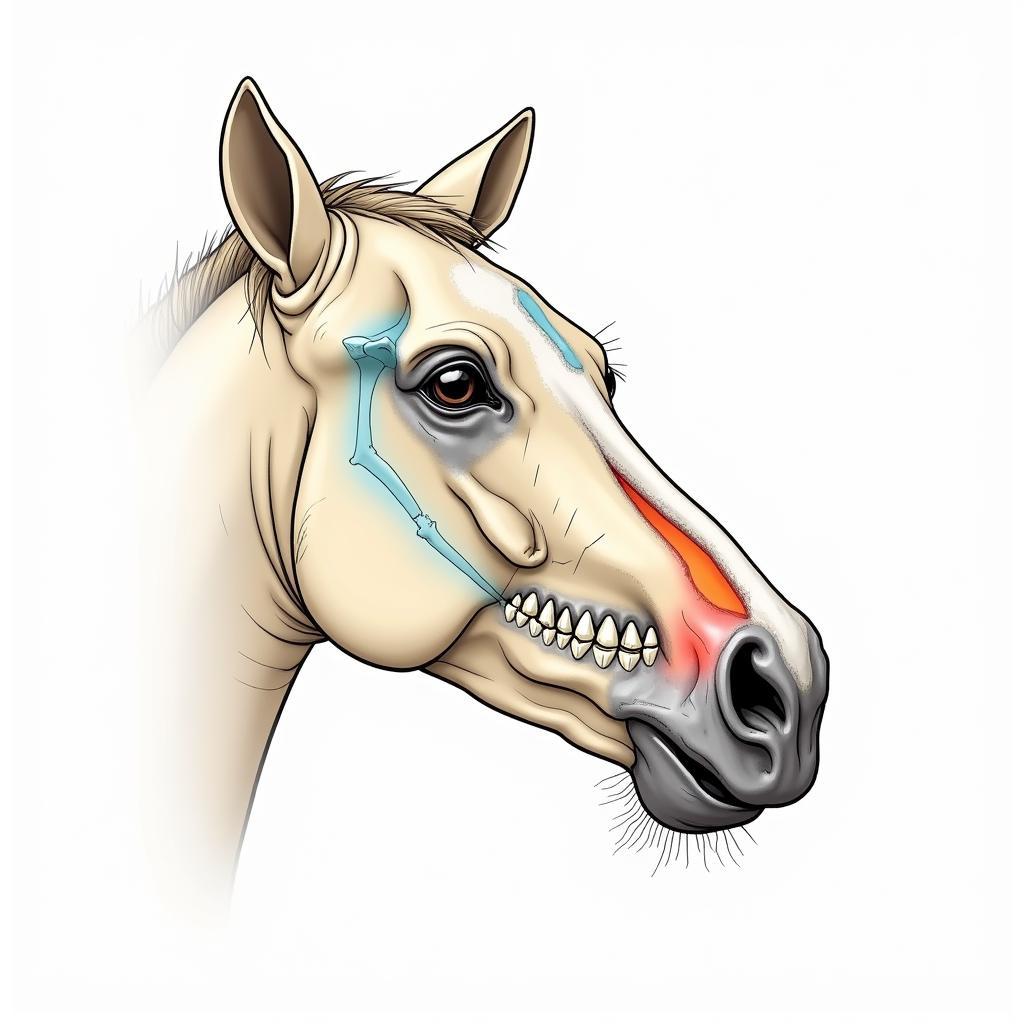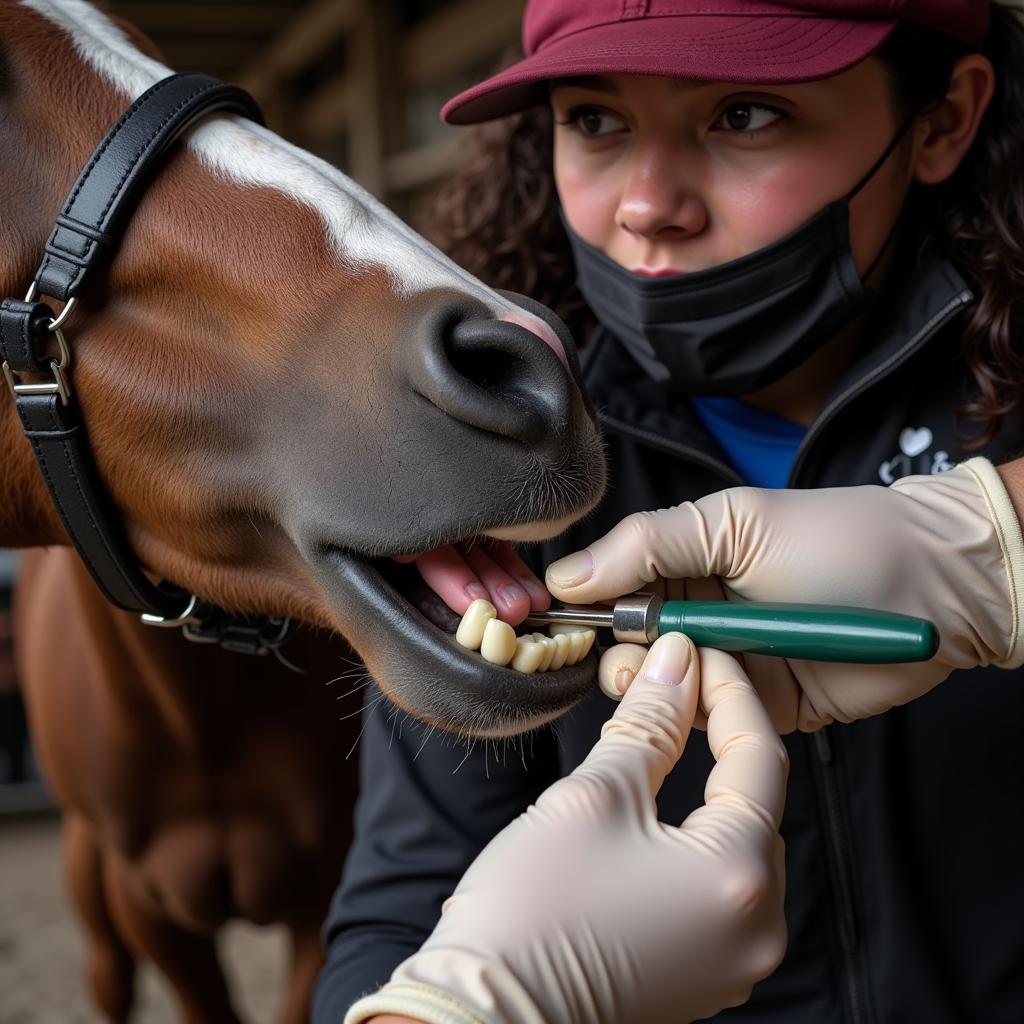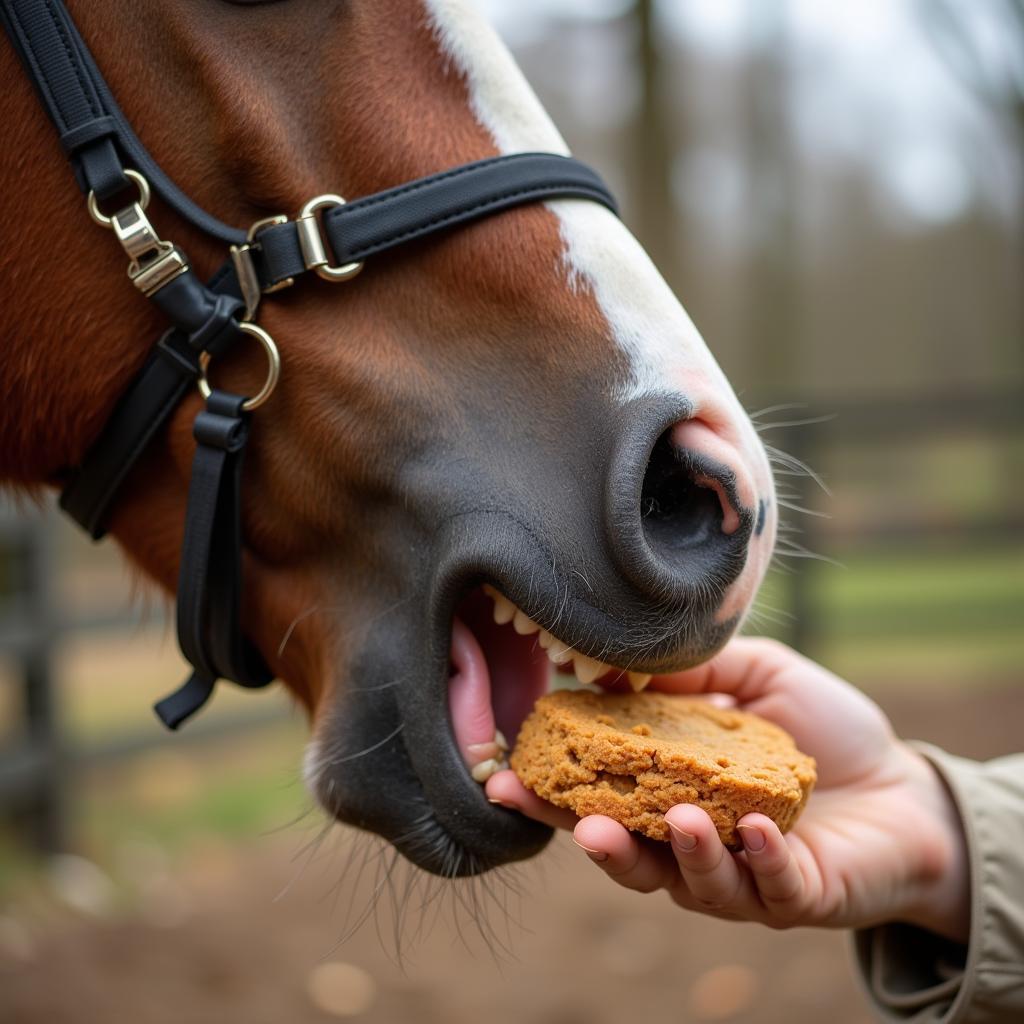Teeth floating in horses is a crucial aspect of equine dentistry that involves filing down sharp points and edges on your horse’s teeth. Unlike humans, horses’ teeth continuously grow throughout their lives. This continuous growth, combined with the side-to-side chewing motion, can lead to the development of sharp enamel points on the outer edges of the cheek teeth and hooks on the first upper and last lower molars.
 Horse Teeth Structure
Horse Teeth Structure
Why is Teeth Floating Important?
These sharp points can cause a range of problems, including:
- Pain and discomfort while chewing: Imagine trying to eat with a sharp piece of metal constantly poking your cheek. That’s what it’s like for horses with dental issues.
- Difficulty chewing food properly: Sharp points can hinder proper grinding and digestion, leading to weight loss and malnutrition.
- Head tossing and bitting problems: Discomfort in the mouth can manifest as behavioral issues during riding.
- Oral ulcers and lacerations: Sharp edges can cut the tongue and cheeks, leading to painful sores.
When to Schedule a Teeth Floating Appointment
Ideally, you should have your horse’s teeth checked by an equine dentist or veterinarian at least once a year. However, some horses, particularly younger and older ones, may require more frequent checkups.
Here are some signs that your horse may need their teeth floated:
- Dropping food while eating (quidding)
- Chewing slowly or hesitantly
- Weight loss or poor body condition
- Foul odor from the mouth
- Excessive salivation
- Nasal discharge, especially with undigested food
- Head tilting or shaking
- Resistance to bridling or bit pressure
 Equine Dental Exam
Equine Dental Exam
What to Expect During a Teeth Floating Procedure
Teeth floating is typically a straightforward procedure performed by a qualified equine dentist or veterinarian.
- Examination: The dentist will begin by examining your horse’s mouth for any abnormalities.
- Sedation: In most cases, the horse will be sedated to ensure their comfort and safety during the procedure.
- Mouth Speculum: A speculum is used to hold the horse’s mouth open, allowing the dentist to access the teeth easily.
- Floating: Using specialized instruments like dental floats (files), the dentist will carefully file down any sharp points or hooks on the teeth.
- Final Check: After floating, the dentist will re-examine the mouth to ensure all sharp edges have been smoothed and the bite is aligned correctly.
Caring for Your Horse’s Teeth After Floating
After a teeth floating procedure, your horse may experience some mild discomfort or swelling. Providing them with soft feed like soaked hay for a few days can make chewing easier.
Remember to schedule regular dental checkups and follow your equine dentist’s recommendations for your horse’s specific needs.
Beyond Teeth Floating: Other Aspects of Equine Dentistry
Teeth floating is a significant part of equine dentistry, but it’s not the only one. Other procedures your horse might need throughout their life include:
- Wolf teeth extraction: Wolf teeth are small, pointed teeth that some horses have in front of their premolars. They can interfere with bitting and are often removed.
- Correction of malocclusions (bite problems): These can include overbites, underbites, and other jaw alignment issues that require specialized dental care.
- Treatment of dental diseases: Like humans, horses can experience tooth decay, gum disease, and other dental issues that require veterinary attention.
 Happy Horse, Healthy Bite
Happy Horse, Healthy Bite
FAQs about Teeth Floating in Horses
1. Is teeth floating painful for horses?
With proper sedation and techniques, teeth floating should not be painful. It’s more about relieving discomfort caused by existing sharp points.
2. How much does teeth floating cost?
The cost can vary depending on your location and the professional’s fees. It’s best to contact your local equine dentist or veterinarian for a quote.
3. Can I float my horse’s teeth myself?
It’s strongly advised against. Teeth floating requires specialized knowledge, tools, and experience. Attempting it yourself can cause more harm than good.
4. How often should a horse have its teeth floated?
Most horses benefit from annual dental checkups, but some may require more frequent visits based on their age, breed, or specific dental conditions.
5. What happens if a horse’s teeth are not floated?
Neglecting your horse’s dental health can lead to various issues, including pain, difficulty eating, weight loss, behavioral problems, and even colic.
Need More Information?
Want to learn more about diastema in horses? Perhaps you’re curious about iron horse dental leawood or looking for information on a black stallion quarter horse?
Justus Horses USA is here to provide you with comprehensive information about all aspects of equine care. We’re committed to being your trusted source for everything horse-related!
Investing in your horse’s dental health is an investment in their overall well-being. Regular dental checkups and timely teeth floating can help ensure your equine partner enjoys a long, healthy, and comfortable life.
Need assistance with your horse’s dental care? Contact us at Phone Number: 0772127271, Email: [email protected] or visit us at QGM2+WX2, Vị Trung, Vị Thuỷ, Hậu Giang, Việt Nam. We have a dedicated customer support team available 24/7.